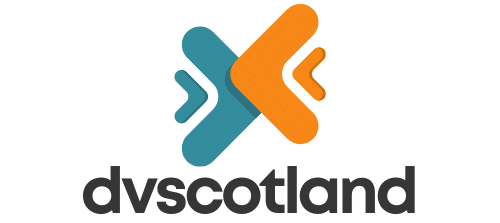What Are the Latest Trends in AI-Assisted Project Management?

Artificial Intelligence (AI) has revolutionized many areas of our lives, from entertainment and social media to healthcare and transportation. But one field where AI has made a particularly noticeable impact is project management. Over the past few years, we’ve seen a surge in AI-assisted project management tools and techniques aimed at making project management more efficient and effective. But what exactly are these trends, and how are they affecting the way we manage projects today? Let’s delve into the latest trends in AI-assisted project management.
Integrating AI with Project Management Software
Project management software is nothing new. For years, project managers have been using tools like Microsoft Project, Basecamp, and Trello to keep track of tasks, manage resources, and coordinate team members. But in recent years, we’ve seen a significant shift in this area. Instead of merely using software as a tool for organization and communication, project managers are now utilizing AI to enhance these software applications, making them smarter and more intuitive.
In the same genre : What Are Innovative Approaches to Digital Marketing for Healthcare Services?
AI can help project management software "learn" from past data, identify patterns, and make predictions about future project outcomes. For instance, by analyzing historical project data, AI can predict how long specific tasks will take or identify potential risks before they become problems. This predictive capacity can be invaluable in helping project managers plan more accurately and mitigate risks proactively.
Moreover, AI can automate routine tasks such as data entry and status updates, freeing up valuable time for project managers to focus on more strategic aspects of their work. By eliminating manual tasks and increasing efficiency, AI is making project management software more powerful and effective.
Also to see : How to Utilize Big Data in Personalizing B2B Customer Experiences?
Leveraging AI for Enhanced Communication and Collaboration
Effective communication and collaboration are critical to the success of any project. AI is playing an increasingly important role in enhancing these aspects of project management.
For instance, AI-powered chatbots are becoming more prevalent in project management. These bots can automate routine communications, answer common questions, and even provide real-time updates on project status. They can also facilitate communication among team members, especially in remote or distributed teams. By automating routine communications, AI-powered chatbots are freeing up valuable time for project managers and team members to focus on more complex and critical issues.
Similarly, AI can enhance collaboration by facilitating decision making. By analyzing project data, AI can offer insights and recommendations, helping teams make more informed decisions. For example, AI might analyze team performance data to suggest the best allocation of resources or identify potential bottlenecks. This enhanced decision-making ability can lead to more effective and efficient project execution.
Utilizing AI in Risk Management and Forecasting
Risk management and forecasting are two other areas where AI is making a significant impact. By analyzing past project data, AI can identify patterns and trends, predict future outcomes, and flag potential risks. This predictive capability is especially valuable in project management, where unforeseen risks can derail a project and cause significant delays and cost overruns.
In terms of forecasting, AI can analyze a project’s historical data, current progress, and external factors to predict its future trajectory. For instance, it can predict how changes in resources or priorities might affect the project’s timeline or budget. This ability to forecast outcomes can help project managers make proactive decisions and adjustments, ensuring the project stays on track and within budget.
Furthermore, AI can also monitor for potential risks and alert project managers when these risks arise. For instance, it might flag potential delays or cost overruns, enabling project managers to take proactive action to mitigate these risks. By enhancing risk management and forecasting, AI is helping project managers plan and execute projects more confidently and effectively.
The Role of AI in Resource Management
One of the most challenging aspects of project management is resource management. Allocating the right resources to the right tasks at the right time is a complex task that requires careful planning and decision-making. AI is playing an increasingly important role in this area.
AI can analyze project data to understand resource usage patterns and predict future resource needs. For example, it might analyze past projects to determine the optimal resource allocation for similar projects in the future. This predictive capability can help project managers plan more effectively and ensure that resources are used efficiently.
Moreover, AI can also help manage human resources more effectively. It can analyze team performance data to identify strengths and weaknesses, suggest training and development opportunities, and even predict potential attrition. By helping project managers manage their human resources more effectively, AI is contributing to the success of projects.
The Future of AI in Project Management
While AI has already made significant strides in project management, the future holds even more promise. As AI technology continues to evolve and improve, we can expect to see even more advanced AI-assisted project management tools and techniques.
One potential trend is the use of AI in project portfolio management. By analyzing a portfolio of projects, AI can help managers decide which projects to pursue and which to deprioritize, based on factors such as expected return on investment, risk, and resource availability. This ability to analyze and prioritize projects at a portfolio level can lead to more strategic and effective project management.
Moreover, as AI becomes more sophisticated, we can expect to see more advanced predictive capabilities. For instance, AI might be able to predict not just project outcomes, but also the impact of specific decisions or changes on these outcomes. This increased predictive capacity could make project management even more proactive and strategic.
While it’s impossible to predict exactly what the future holds, one thing is clear: AI is transforming project management, and this trend shows no signs of slowing down. So whether you’re a seasoned project manager or just starting out in the field, it’s essential to keep up with the latest trends in AI-assisted project management to stay competitive and effective in this rapidly evolving field.
AI-Driven Workflow Management
Workflow management is an area that can greatly benefit from AI implementation. It involves the coordination and execution of a complex series of tasks, often involving multiple team members and departments. It’s a challenging aspect of project management, but one where AI can provide significant assistance.
AI can analyze complex workflow data to identify inefficiencies and suggest improvements. For instance, it might analyze the time taken for each task, the number of steps involved, and the sequence of tasks to identify bottlenecks or redundant steps. By doing this, AI can optimize workflow processes, making them more efficient and effective.
Moreover, AI can also automate many aspects of workflow management. It can automate task assignment, based on factors like the skills of team members, their availability, and the priority of tasks. It can also automate task tracking and updating, ensuring that all team members have real-time visibility into the progress of tasks. This can greatly reduce the administrative burden on project managers, freeing them to focus on more strategic aspects of the project.
Moreover, AI can also enable more dynamic workflow management. It can analyze real-time project data to adapt workflows to changing circumstances. For instance, if a critical task is delayed, AI can automatically adjust the workflow to minimize the impact on the project. This dynamic capability can make workflow management more responsive and agile, enhancing project outcomes.
Conclusion: Transformative Impact of AI in Project Management
There’s no denying that AI is making waves in project management. From enhancing project management software and communication tools to improving risk management and forecasting, AI is transforming the way we plan, execute, and oversee projects. Yet, perhaps the most exciting aspect of this trend is what’s still to come.
As AI technology continues to evolve and improve, we can expect to see even more advanced AI-assisted project management tools and techniques. Advanced predictive capabilities, enhanced resource management, and dynamic workflow management are just a few of the potential developments on the horizon.
While it’s impossible to predict exactly how these advancements will shape project management in the years to come, one thing is clear: AI is here to stay. It’s not just a fad or a buzzword; it’s a powerful tool that’s fundamentally changing the way we manage projects. And as AI continues to evolve, its impact on project management is only set to grow.
So, whether you’re a seasoned project manager or just starting out in the field, it’s crucial to keep up with the latest trends in AI-assisted project management. By embracing AI, you can make your projects more efficient, effective and successful. And in this rapidly evolving field, that’s a competitive advantage you can’t afford to ignore.
